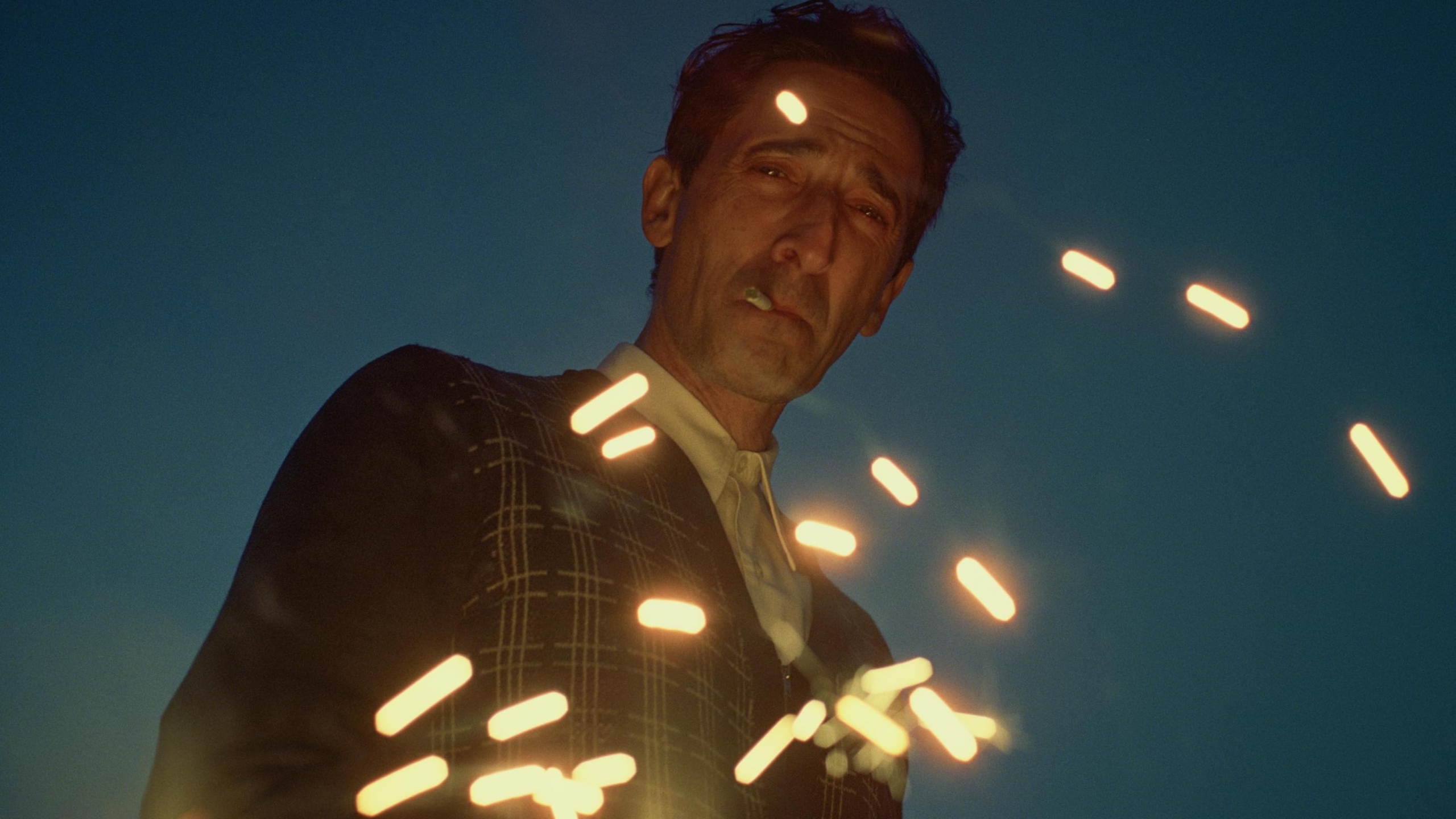Leave Early

Note: “I could now write wonderful colorful soap bubbles; true rainbow bubbles,” Joseph Roth wrote in 1925. “After all, you can say valid things even on half a page in a newspaper, can’t you?” In this spirit, the Diasporist is introducing a new series called Seifenblasen (soap bubbles), in which editors and writers discuss books, films, events, exhibitions, and ideas in very short form.
An invitation: See this movie, absolutely. Go to your favorite cinema and marvel at what comes from the screen. Observe how Adrian Brody suffers and loves, how his László Toth breaks with American society (and himself) — everything about his acting is wonderful. Blink briefly if you find the (interior) architectural designs too artificially intelligent. But don’t worry, that will not diminish your enjoyment of the movie.
But as soon as the frame announcing the intermission of the three-and-a-half-hour movie appears, if you are there to see a good movie — leave. Go to the movie bar, buy a drink for the way home, and don’t return to the theater. You will leave remembering a movie that is a monument to migrants and refugees, in the 20th century and beyond.
But if you are one of the unfortunate members of those professions who criticize, edit or proofread, or who lead a dramaturgy seminar — go back. In the second half you will find a textbook example of how a director can let his own movie go needlessly wrong. You will be able to point this example out to your writers (or students) for a long time to come.
There is a scene in the second half that is not only metaphorically overloaded (yes, it’s the assault). As a metaphor, this scene could be benevolently overlooked. However, because the final minutes of the narrative return to it and develop it into a dramatic element, the film, what seemed to be a multi-layered story of emigration, poverty, dependency, and death, instead becomes the family tragedy of the secondary characters. We see the end of a certainly good, but completely different movie. Perhaps the film rolls were swapped during the intermission?
Happy are the hasty ones, happy are those who have had their fill of the magic of the camera after just under two hours, who have an appointment to get to or have to get up in the morning — we should follow their example more often. Sometimes, it’s worth it to leave when it’s at its best.